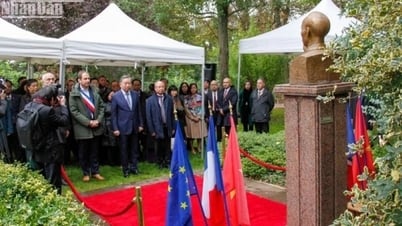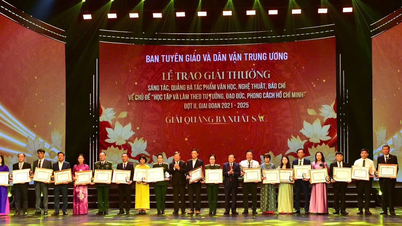SGGP
The North Atlantic Treaty Organization (NATO) has just inaugurated a new quantum technology center called Deep Tech Lab Quantum in Denmark.
The move shows that the military organization wants to take the lead in the race to develop promising quantum technology.
Impact on the balance of power
The new NATO quantum technology center is part of the North Atlantic Defense Innovation Acceleration initiative, which the Danish Ministry of Defense says aims to ensure NATO’s technological edge in areas such as artificial intelligence, space technology and quantum technology.
According to observers, NATO's acceleration in the race to develop quantum technology is inevitable, especially in the context of science and technology playing an important role in shaping economic structures and changing the balance of national power. With this new step, NATO shows that it is continuing to transform in the era of strategic competition, determined to consolidate and enhance the strength of the alliance to be ready to act when necessary on all issues affecting the bloc's security.
 |
| Quantum technology has many great application prospects. |
Great application prospects
Along with the continuous advances in fields such as artificial intelligence (AI), robotics, the Internet of Things (IoT) and nanotechnology, quantum technology is predicted to continue to accelerate the Industrial Revolution 4.0. Whether in the military or civilian fields, quantum technology has shown great application prospects. For leading countries in this field, the impact will be profound and significant as it can stimulate industrial production, create jobs, bring economic benefits and national security.
To date, more than 20 countries have national initiatives or strategies related to quantum technology. The United States, the European Union, China, Russia, India, Japan, and Australia have all set up a series of research and development programs for quantum science and technology to stay ahead of the trend.
The three main areas of quantum technology are computing, communications, and quantum sensing. Advances in quantum computing could lead to a leap in artificial intelligence and machine learning, which could improve the performance of autonomous lethal weapons systems. It could also make it easier to analyze large data sets used in defense intelligence and cybersecurity. Meanwhile, quantum communication systems can be secure and unhackable. This is a factor that helps keep information secure, especially information sensitive to national security such as intelligence and military.
Source


![[Photo] President Luong Cuong presents the 40-year Party membership badge to Chief of the Office of the President Le Khanh Hai](https://vphoto.vietnam.vn/thumb/1200x675/vietnam/resource/IMAGE/2025/5/19/a22bc55dd7bf4a2ab7e3958d32282c15)

![[Photo] Panorama of the Opening Ceremony of the 43rd Nhan Dan Newspaper National Table Tennis Championship](https://vphoto.vietnam.vn/thumb/1200x675/vietnam/resource/IMAGE/2025/5/19/5e22950340b941309280448198bcf1d9)
![[Photo] General Secretary To Lam attends the conference to review 10 years of implementing Directive No. 05 of the Politburo and evaluate the results of implementing Regulation No. 09 of the Central Public Security Party Committee.](https://vphoto.vietnam.vn/thumb/1200x675/vietnam/resource/IMAGE/2025/5/19/2f44458c655a4403acd7929dbbfa5039)

![[Photo] Close-up of Tang Long Bridge, Thu Duc City after repairing rutting](https://vphoto.vietnam.vn/thumb/1200x675/vietnam/resource/IMAGE/2025/5/19/086736d9d11f43198f5bd8d78df9bd41)




























![[Photo] Prime Minister Pham Minh Chinh inspects the progress of the National Exhibition and Fair Center project](https://vphoto.vietnam.vn/thumb/1200x675/vietnam/resource/IMAGE/2025/5/19/35189ac8807140d897ad2b7d2583fbae)

























































![[VIDEO] - Enhancing the value of Quang Nam OCOP products through trade connections](https://vphoto.vietnam.vn/thumb/402x226/vietnam/resource/IMAGE/2025/5/17/5be5b5fff1f14914986fad159097a677)



Comment (0)